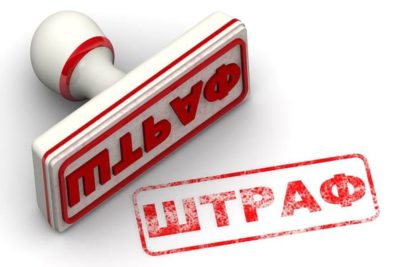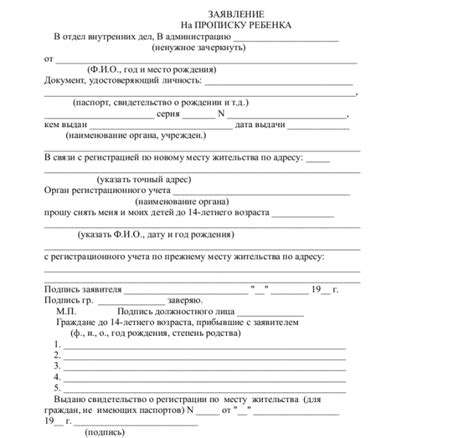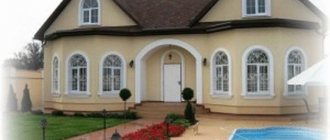What is a loft
A loft is understood as a room that was previously non-residential and used for industrial purposes, but is currently equipped for living in it. A distinctive feature of such apartments is their unusual design and layout: as a rule, they combine a kitchen and a living room.
But in cases where the owner of such housing has the question “Is it possible to register in an apartment that is classified as a loft?”, he faces certain difficulties. In accordance with the current legislation, it will not be possible to register here on a permanent basis, but obtaining short-term registration is quite possible.
The difference between apartments and standard housing
Apartments differ from standard housing primarily in that they are classified as commercial real estate. They are, in fact, non-residential premises adapted for living. In addition, apartments are characterized by a higher cost for the entire list of utility bills and a higher tax, which is a significant disadvantage. Such objects should not meet the norms and standards for residential real estate.
What kind of real estate can you register in?
It is possible to obtain permanent registration in a house or a separate apartment, which, as a rule, are classified as residential properties. For this reason, the answer to the question “Is it possible to register in a studio?” is affirmative. Apartments of this type are included in the housing stock, so there will be no difficulties with registration (if there are no other nuances).
But those who are interested in whether it is possible to register in a loft have nothing to please them with. Currently, it is possible to register in such premises only for a certain period of time.
Is it possible to register in the apartment?
Question “Is it possible to register in the apartment?” is currently relevant. This is not surprising, since legislation is constantly changing, and today it is quite possible to register in such a room on a permanent basis. This is possible if the apartments were officially transferred to housing stock. In situations where this requirement has not been met, it will not be possible to obtain permanent registration.
For this reason, the purchase of apartments with the right of registration has become available. But before concluding a deal, it is worth finding out whether the property being put up for sale has received residential status.
If the loft has already been purchased, then a way out of the situation may be renewable registration in the apartment on a temporary basis. Here you can register for up to 5 years. And when this period expires, apply with the necessary package of documents to the Main Directorate for Migration Affairs of the Ministry of Internal Affairs in order to extend it. You can do this an unlimited number of times.
Apartments
What are apartments in Russia? So, if in European countries this word refers to residential premises that have more comfortable and expensive living conditions, then in our country an apartment means an expensive hotel room.
According to the law, registration in the apartments is possible, but it has a certain period. It is impossible to obtain permanent registration in this premises, since formally it is classified as non-residential commercial. After making some changes to the registration law, every citizen who can financially afford to live in such an expensive premises can temporarily register in the apartments.
After making some changes to the registration law, every citizen who can financially afford to live in such an expensive premises can temporarily register in the apartments. Also, according to the changes, the period for temporary registration itself has been extended.
Now you can register in an apartment for a period of up to 5 years. It is impossible to obtain permanent registration in an apartment even if it is purchased as private property.
The only way to change the situation is to try to convert non-residential premises into residential ones or to achieve the right to permanent registration through the court.
The legislative framework
To date, there is no law on apartments, and there is also no definition of such a property in regulations. However, premises of this kind, which are equipped with everything necessary for living, do not qualify as residential. And this, as noted above, means that it is impossible to register here on a permanent basis.
A bill on registration in apartments is currently under consideration, which would classify lofts as residential real estate. And this, accordingly, will entail the existence of legal grounds for permanent registration at the place of residence.
Registration in non-residential premises
Registration is registration at the place of permanent or temporary residence. Non-residential real estate cannot be legally recognized as a place of residence. Therefore, it is legally impossible to register there .
Even temporary registration in such a territory will not be allowed. All places where registration is possible are listed in the first article of the appendix to Resolution No. 713 of July 17, 1995.

In 2020, human rights activist Yevgeny Bobrov initiated the creation of a law on documents replacing the stamp in the passport.
As such, registration may become irrelevant if this law is adopted.
In the meantime, in order to register legally, the premises must be officially transferred to housing stock in accordance with Government Resolution No. 47 of January 28, 2006. To do this, you have to contact the local municipality and spend a lot of nerves and financial savings.
Read more: Tax deduction until what date to submit documents
A special commission recognizes the premises as suitable for living. Most often this topic concerns country houses. As you can see, living in non-residential premises is an almost impossible and illegal task.
Types of registration
It should be noted that a person does not immediately buy apartments with registration. But if such an acquisition was made for the purpose of living, then it is worth registering in this area. Currently, there are 2 types of registration:
- permanent - allowed in apartments located in multi-apartment buildings, as well as private houses;
- temporary (short-term) - produced for those living in hostels, hotels, hotels.
Registering for a certain period of time in a loft will not be a problem, but to achieve permanent registration, you will have to make considerable efforts.
If a person plans to live in an apartment, then he needs to register. The lack of registration prevents a citizen from exercising his rights (this may relate to the possibility of education or receiving social security). In addition, staying in a certain locality without registration for more than 90 days entails the imposition of an administrative penalty in the form of a fine.
Moreover, if the apartments are located in the same city where the person is registered on a permanent basis, then there is no need to register temporarily.
Permanent registration
In order to register at the place of residence (here we mean apartments), it is necessary to transfer the premises from non-residential to residential in accordance with the established procedure. To do this, it is necessary to collect a package of documents with which it is possible to confirm that the property meets established fire safety and sanitary standards, and also has all the conditions for round-the-clock living.
The documentation is submitted to the local administration (at the location of the premises). The refusal may be appealed in court. In addition, it is possible to achieve the right to permanent registration by immediately going to court.
Temporary registration
Temporary registration in apartments is a common occurrence. Such a procedure seems possible provided that such a premises is equipped with all the amenities that make it suitable for living. To do this, you need to collect all the documents and submit them to the registration authority. Registration is carried out within 3 working days.
The Main Directorate for Migration Affairs of the Ministry of Internal Affairs does not have the right to refuse temporary registration in an apartment if the citizen has provided all the documents necessary for this.
Property status
What registration will be like in the apartment depends directly on the status of the property. If it has been recognized as residential in the prescribed manner, then you can try to register on a permanent basis. And if the loft is part of a non-residential property, then we can only talk about short-term registration.
Responsibility for this type of use of commercial premises
The law does not provide for direct liability for the use of non-residential premises for residence. There is no article dedicated to this particular offense. However, this can be punished under another article - 6.4 of the Code of Administrative Offenses of the Russian Federation. The main thing is to prove that residents of utility rooms violate sanitary and epidemiological rules.
Article 6.4 of the Code of Administrative Offenses of the Russian Federation. Violation of sanitary and epidemiological requirements for the operation of residential premises and public premises, buildings, structures and transport
Violation of sanitary and epidemiological requirements for the operation of residential premises and public premises, buildings, structures and transport - entails the imposition of an administrative fine on citizens in the amount of five hundred to one thousand rubles; for officials - from one thousand to two thousand rubles; for persons carrying out entrepreneurial activities without forming a legal entity - from one thousand to two thousand rubles or administrative suspension of activities for a period of up to ninety days; for legal entities - from ten thousand to twenty thousand rubles or administrative suspension of activities for a period of up to ninety days.
Practice shows that the process of proving residence in non-residential structures is very complicated . The task is simplified if non-residential premises are located in a large residential building.
In this case, residents of the house can attract violators by contacting Rospotrebnadzor or the FMS (if they are guest workers).
So, if the fact of living in unauthorized premises is established, then according to Article 6.4 of the Code of Administrative Offenses of the Russian Federation:
- a citizen can be fined from 500 rubles to 1,000;
- an entrepreneur and official may pay from 1,000 to 2,000 rubles;
- An organization can be sanctioned for an amount from 10,000 to 20,000 rubles.
In addition, living in an office or garage causes a lot of inconvenience:
- Any inspection services may come to you during business hours.
- In such places it is impossible to equip many household items, for example, a gas stove.
- It should also be noted the high cost of utilities. For the same water that flows from the tap you will have to pay many times more than the occupant of a residential premises. This is due to government policy in the field of public services. There are incentives for residential premises, but there are no incentives for commercial premises.
Read more: Statement of claim to reduce the percentage of alimony
To summarize, it should be noted that non-residential premises are actively used in civil circulation. There are many gaps in the legislation regarding them. There is no clear concept, no extremely clear responsibility for illegal registration and residence in them. However, this is not a reason to break the law.

Where to go to register
To register at your place of residence, you must submit a corresponding application and the required list of documents to the territorial body of the Main Directorate of Migration Affairs of the Ministry of Internal Affairs. To begin with, it doesn’t hurt to find out where temporary registration is issued in a specific locality.
In addition, in order to obtain a short-term registration, it is possible to provide the necessary documentation through the post office or the State Services portal.
Registration procedure
Registration in the apartments takes place from 3 to 8 days. This procedure involves the following points:
- collection of the necessary list of documents;
- provision of documentation to the registration authority;
- obtaining a certificate confirming the fact of registration.
You can get advice on how to register in an apartment directly at the Main Migration Department of the Ministry of Internal Affairs. It should be taken into account that in this case there is no need to deregister at the place of permanent registration.
If a person wishing to complete a short-term registration has time, then the collected documentation can be sent to the registration authority by mail. It is better to do this by registered mail, attaching an inventory of the contents (serves as confirmation of sending the required list of documents).
It will not be difficult to obtain temporary registration through the State Services portal. In this situation, the application with the attached documentation is sent online. The response usually arrives by email within 3 business days. A certificate confirming the fact of registration will need to be obtained in person.
List of required documents
If there is a need to find out what documents are needed for registration in the apartments, you should contact the territorial office of the Main Directorate for Migration and Migration for clarification. As a rule, the list of required documentation includes:
- applicant's passport;
- an agreement confirming the fact of purchase of the premises;
- departure certificate (if available) - most often required in cases where it is possible to obtain permanent registration (the loft has been transferred to housing stock).
Along with the listed documents, a completed application of the established form is submitted.
Liability and fines

The use of premises unsuitable for living as residential, namely, for permanent residence, is fraught with punishment under Art. 19.15 Code of Administrative Offenses - violation of passport regime.- Living outside the place of permanent registration is punishable by an administrative fine of 2-3 thousand in the regions, up to 5 thousand in federal cities.
If a person lives in a non-residential premises, but in the region where he is permanently registered, then the punishment under Art. 19.15 Code of Administrative Offenses does not threaten him.
Sometimes Rospotrebnadzor is involved in identifying illegal tenants . When evicting and choosing the method of punishment, the service is guided by Art. 6.4 Code of Administrative Offenses “Violation of sanitary and epidemiological requirements for the operation of buildings and structures.”
Article 6.4 of the Code of Administrative Offenses of the Russian Federation. Violation of sanitary and epidemiological requirements for the operation of residential premises and public premises, buildings, structures and transport
Violation of sanitary and epidemiological requirements for the operation of residential premises and public premises, buildings, structures and transport -
entails the imposition of an administrative fine on citizens in the amount of five hundred to one thousand rubles; for officials - from one thousand to two thousand rubles; for persons carrying out entrepreneurial activities without forming a legal entity - from one thousand to two thousand rubles or administrative suspension of activities for a period of up to ninety days; for legal entities - from ten thousand to twenty thousand rubles or administrative suspension of activities for a period of up to ninety days.
Read more: Contract with an individual, labor code
Rospotrebnadzor is usually notified of illegal residents by vigilant neighbors. As punishment, fines are applied to violators: up to 2 thousand rubles for individuals, up to 20 thousand rubles for entrepreneurs.
In Moscow and St. Petersburg, the FMS previously agreed to help clear non-residential premises from illegal tenants. After the reorganization of the service, the district police officer needs to report Tajiks living in the basement or homeless people in the attic; he will determine how the authorities can influence this situation.
It is illegal to live in non-residential premises in Russia . Legislative acts strictly describe the requirements that a property suitable for living must have. If the property meets these requirements, it can be converted into housing status through the municipality or through the court. Garages, apartments, and country houses do not always have residential status, but no one can prohibit the owner from living there if he does not interfere with anyone.
If you find an error, please select a piece of text and press Ctrl+Enter.
Didn't find the answer to your question? Find out how to solve exactly your problem - call right now:
+7 (Moscow) It's fast and free!
By Oleg Perov / July 20th, 2020 / Administrative law / No Comments

Over time, there are more and more non-residential premises. They are bought, rented out, their purpose changed, transferred from residential to non-residential.
In a word, they are the subject of many legal relations. The main condition that the law sets for them is not to live in them. However, given the resourcefulness or despair of many citizens, these premises are often used for other purposes.
- Letter of the law
- Is it possible to live there?
- Is there a penalty for registration?
- Responsibility for this type of use of commercial premises
Possible difficulties
In practice, difficulties often arise even with temporary registration in the apartment. This applies to premises located in reconstructed buildings or multifunctional complexes. In such cases, it will not be possible to obtain even temporary registration.
The reason why you cannot register in an apartment may be the lack of all necessary amenities for living. And if the object in which you want to register has hotel status (intended for temporary residence in it, which can be documented), then there will be no obstacles to this.
Step-by-step algorithm for registering temporary registration in an apartment
Permanent registration in the apartments is still not possible. But the legislation allows that you can register with them on a temporary basis (that is, register temporarily at your place of residence).
It is formatted as follows:
- A citizen has 90 days from the date of arrival to register. If this deadline is missed, you will have to pay a fine of 2 to 3 thousand rubles;
- Temporary registration can be issued for a period of up to 5 years. During this time, the owner of the apartment may have another home, and the problem of registration will no longer be relevant;








